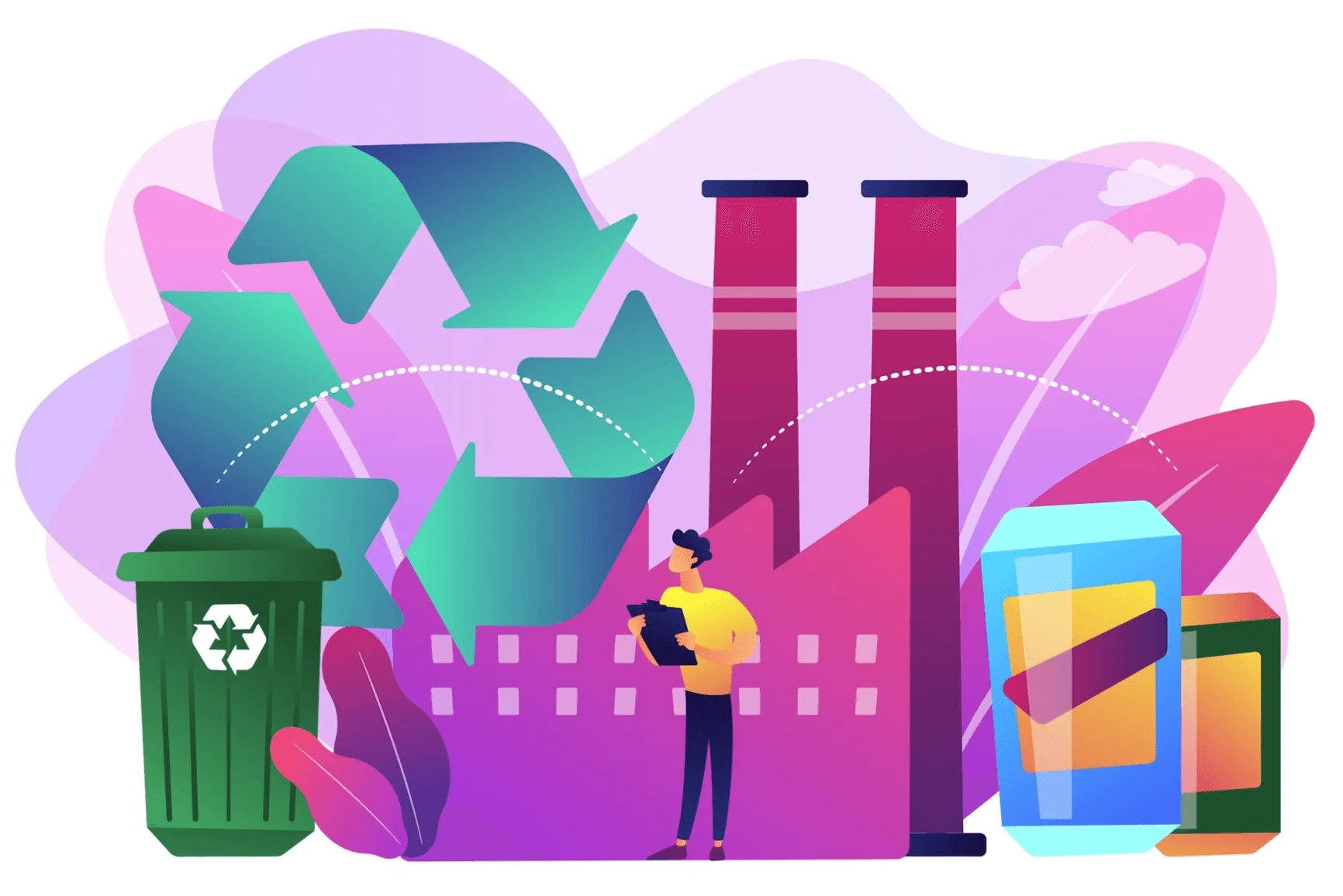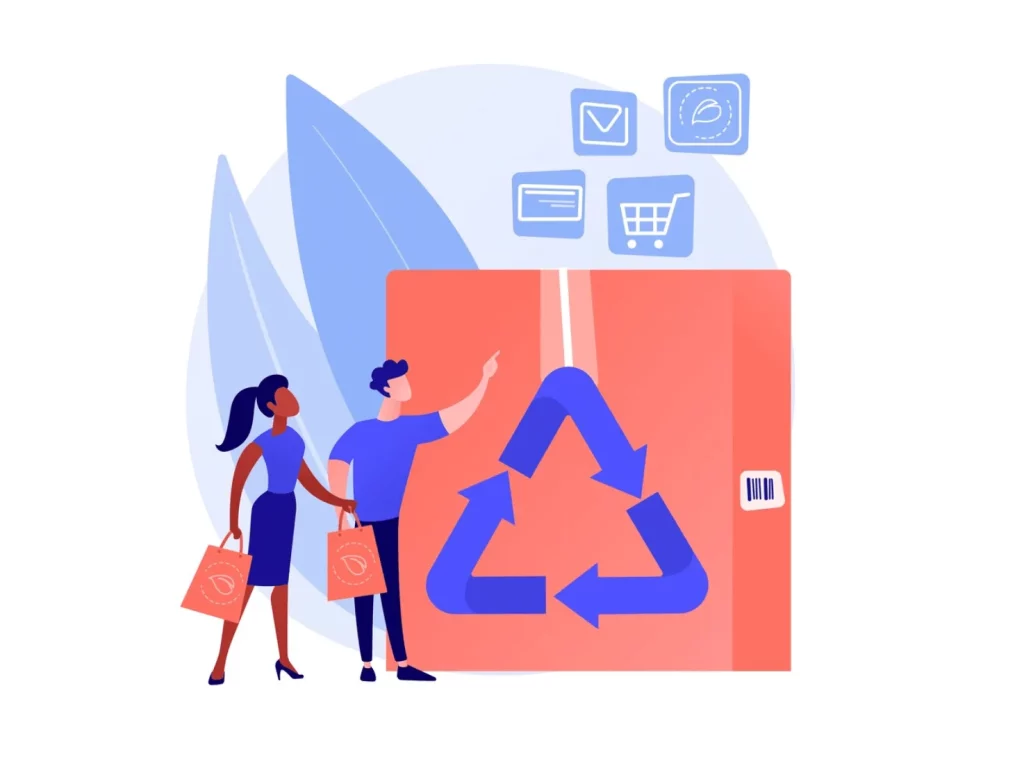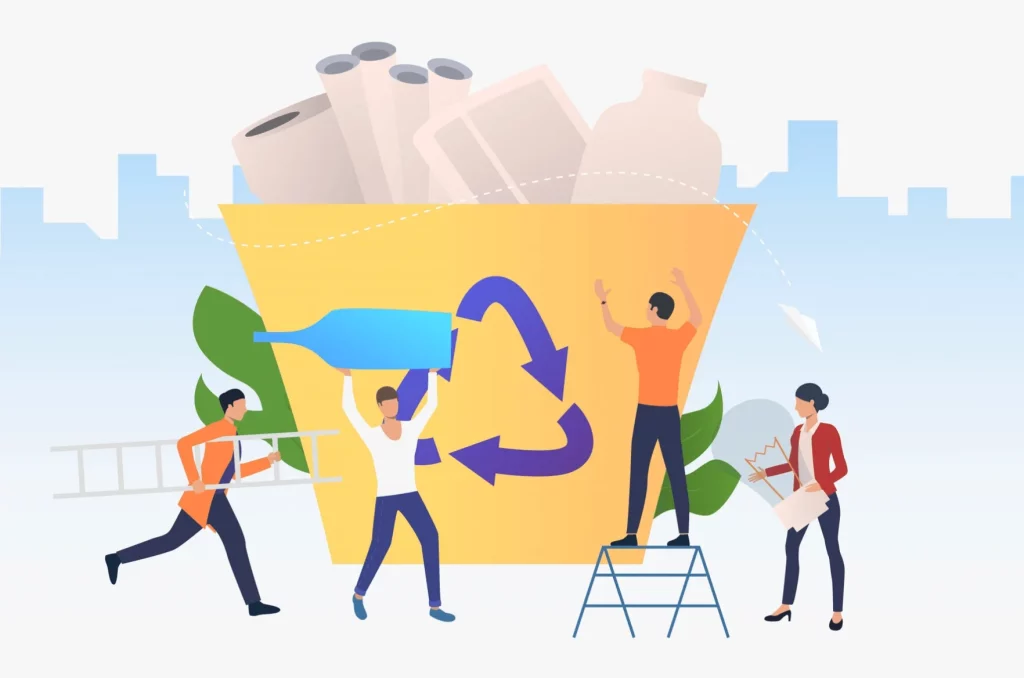How can waste be efficiently valorized?

Waste valorization is much more than just waste management; it’s a strategic lever towards a circular economy. But what are we talking about, and how can it be implemented? We explain all of this in this article.
- What is waste valorization?
- The benefits of waste valorization
- Different waste valorization techniques
- The role of businesses in waste valorization
What is waste valorization?
Definition of waste valorization
Waste valorization involves the recovery and transformation of residual materials into another product, whether material or energy. Valorization is an alternative to waste disposal.
Objectives of waste valorization
- Cost reduction
Opting for waste valorization helps to reduce costs associated with traditional waste disposal. By recycling and reusing, a more efficient resource management system is established. This promotes long-term cost savings.
- Compliance with environmental standards
By adopting responsible practices, a company or municipality contributes to biodiversity preservation and helps reduce greenhouse gas emissions.
- Promotion of the circular economy
Promoting the circular economy is at the heart of waste valorization objectives. Transforming waste into reusable resources stimulates the emergence of new markets and encourages more sustainable production, thereby strengthening the sustainability of economic activities.
Nomadia supports you in your waste valorization process with our dedicated software!
The benefits of waste valorization
Waste valorization is becoming an essential strategy for businesses and municipalities. Why? Because it’s much more than just waste management; it’s an opportunity for transformation that’s beneficial in many ways.
- Cost reduction
Opting for waste valorization significantly reduces the costs associated with waste disposal. By recycling and reusing, companies decrease their expenses related to landfills while contributing to environmental preservation.
- Environmental responsibility
Waste valorization is a concrete step towards environmental responsibility. Companies and municipalities that adopt these practices demonstrate a tangible commitment to sustainability, thereby enhancing their image and credibility.
- Energy valorization
A often underestimated advantage is the possibility of deriving energy from waste. Energy valorization transforms waste into energy sources, reducing dependence on non-renewable resources and promoting the transition to sustainable energy solutions.
- Local economic benefits
Waste valorization creates local economic opportunities. By promoting recycling and on-site processing, companies support local jobs and stimulate the regional economy.
- Regulatory compliance
Adopting waste valorization practices ensures compliance with constantly evolving environmental regulations. This prevents legal risks while establishing a corporate culture that respects current standards.

Different waste valorization techniques
There isn’t a single way to valorize your waste. Here are the different solutions available to you. Find the one that best suits you!
- Waste recycling
Recycling transforms waste materials (paper, plastic, glass) into new resources. This efficient method reduces the amount of waste sent to landfills, thus contributing to environmental preservation.
Nomadia offers solutions to assist you in your waste collection.
- Waste reuse
Waste valorization takes on a strategic dimension with reuse. It involves giving a second life to used materials. Many materials are involved! Office furniture, waste, plastics, etc. You contribute to a more responsible management of our environmental footprint.
- Organic waste composting
Among the most effective methods, composting organic waste stands out as an ecological and economical solution.
Composting transforms organic waste into a natural fertilizer rich in nutrients. This sustainable approach significantly reduces waste destined for landfill.
- Energy valorization of waste
Energy valorization involves converting non-recyclable waste into energy. This process produces electricity or heat, thus reducing dependence on traditional energy sources.
By adopting these different methods, companies and municipalities can not only reduce their carbon footprint, but also actively contribute to environmental preservation.
The role of businesses in waste valorization
Businesses, as drivers of environmental change, are called to play a key role in waste valorization. By adopting responsible practices, they contribute to ecosystem preservation.
- Eco-responsible waste management: an imperative
Establishing eco-responsible waste management is essential. Selective sorting, recycling, and source reduction are concrete actions that reduce ecological footprint and generate savings.
- Integration of energy valorization: a sustainable path
Transforming waste into renewable energy promotes more sustainable supply. Tailor-made solutions are offered to support this transition.
- Employee awareness: a major lever
Raising employee awareness of waste valorization issues is essential. Training teams in good practices promotes a sustainable corporate culture. Customized awareness programs maximize positive impact.
- Waste valorization and innovation: a fruitful alliance
Waste valorization can be a source of innovation. Rethinking production processes opens up new opportunities. Expert advice guides companies towards innovative and efficient solutions.
- Circular economy: a comprehensive approach
Promoting a circular economy involves reintegrating waste into the production cycle. Key strategies are proposed to create a virtuous circle where waste becomes resources, reducing dependence on raw materials.

